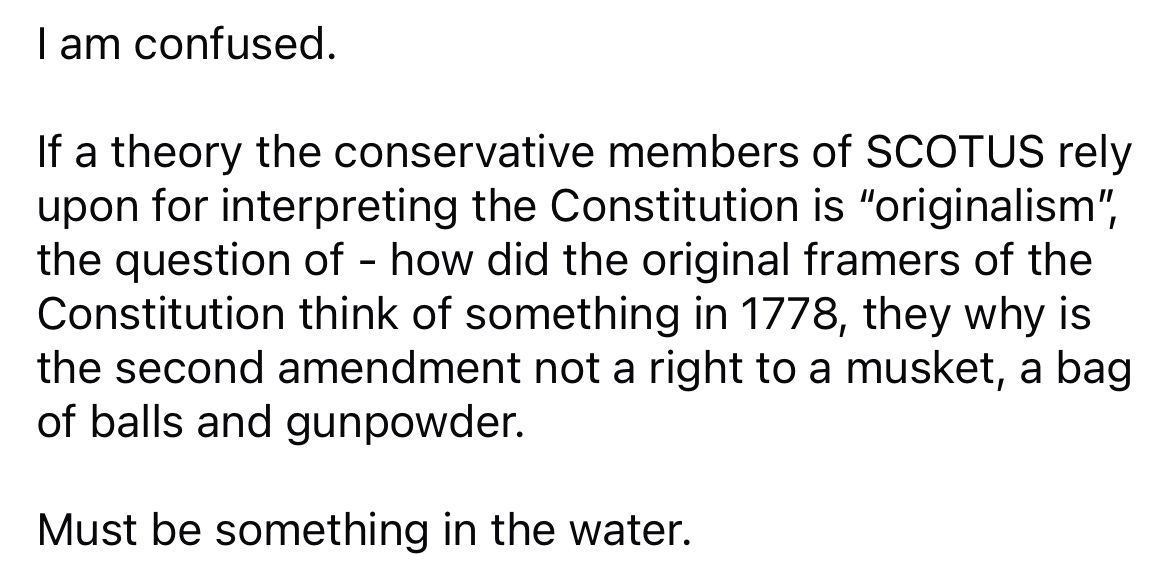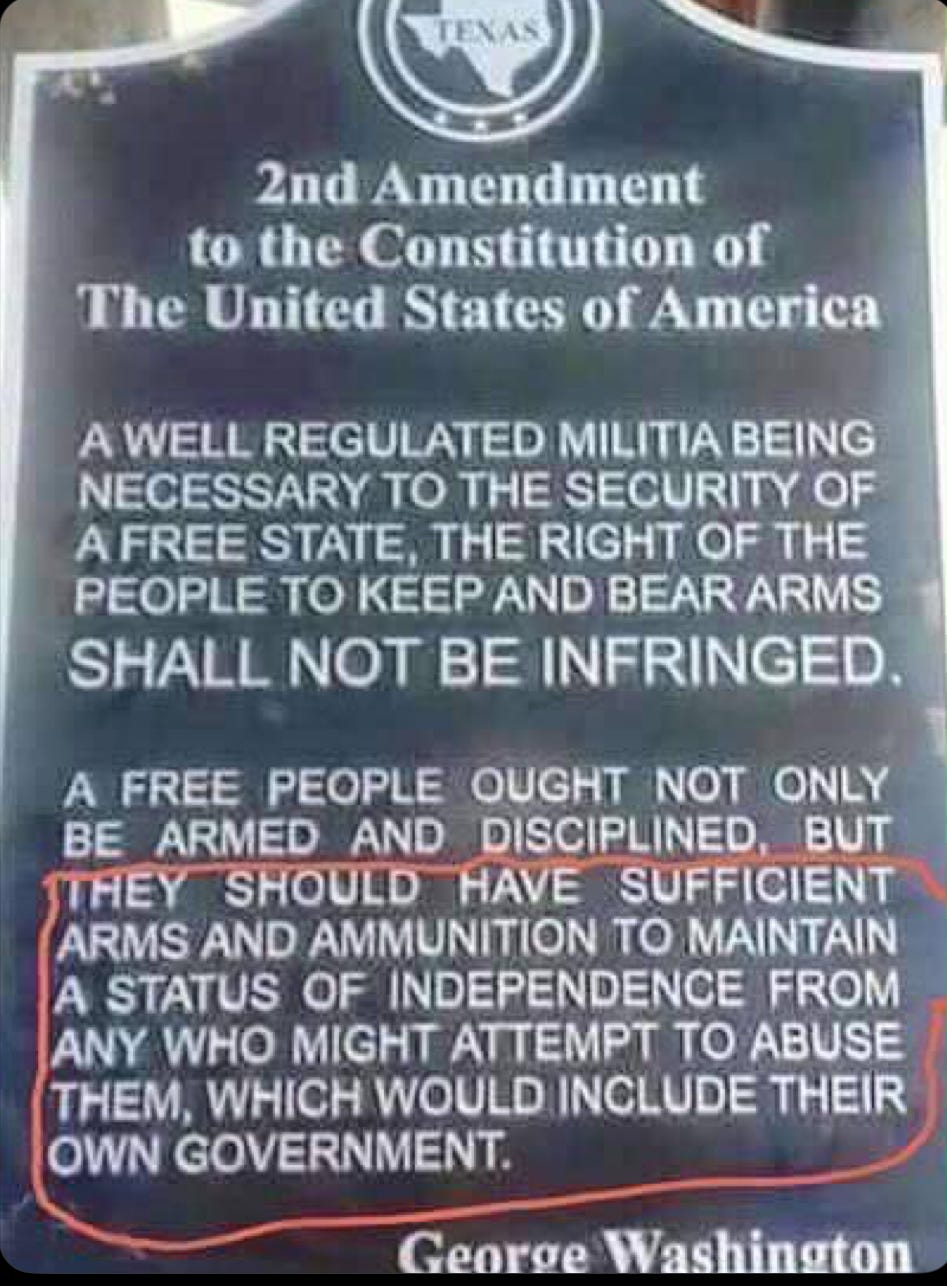Some Challenges to the 2nd Amendment Are Comical!
And dangerous if believed by the uninformed.
Saturday, June 28th, 2025
This came across my feed, from an otherwise super smart person I adore. He just happens to hold a grudge against the 2nd Amendment. I’m not sure why, but today he posted this:
I’d love to hear your thoughts on the response this triggered in me. I love challenges, as it makes me think about the why and what behind my own ideas and beliefs — and the following makes sense to me — but, what do you all think?
MY THOUGHTS:
Puhlease.....🙄
When we declared independence from Britain, and fought the Revolutionary War, why DID we use muskets and gunpowder versus swords or rocks and heavy wooden clubs?
For the same reason that the “intention” of the 2nd Amendment has nothing to do with technology and everything to do with goal + outcome.
If the country is threatened, by enemies foreign or domestic, the protection of the country remains a goal of "the people" and they cannot step up and participate if they are ignorant of and banned from the ownership of necessary tools/weapons of defense.
Cannons existed when the Revolution occurred, but average people were not intended to purchase cannons anymore than the people of today are expected to own a fighter jet.
Militias are small combat units, made up of humans who can move fluidly during complex conflicts occurring within their home territory / on our domestic front — was the goal.
This involves physical fitness, training, interpersonal connections, small handheld arms (guns of all sorts) and armor, night vision goggles, laser aiming tech, drones, communications, etc.
The British lost for many reasons, one of which was their adherence to old strategies that didn't fit well into the terrain of an enemy that knew their land far better and demonstrated tremendous courage, resilience, and strategy.
Why do we not ride horses into Iran and try to climb wooden ladders down into their nuclear facilities with buckets of hot pitch in hand...?
Same reason.
BTW - I FOUND THIS ON X:






March, you're actually mistaken about some of what you said about weapon ownership at the time of the writing of the 2nd Amendment. While private ownership of cannon was not common, it was not prohibited by law. Cannon were simply expensive and not practical for most people to own. And your analogy of people now not being expected to own a fighter jet was interesting. At the time the Constitution was written, private ownership of what was then the most powerful weapon in the world was permitted. What was that weapon? A ship of war, the most feared weapon in the world. Again, not many private individuals could afford to own a "ship of the line", or even something the size of a frigate, but many individuals owned smaller vessels that were well armed with multiple cannon. Some of those ships were used as privateers during the Revolution and the War of 1812, as well as many other times when the US was supposedly at peace.
The point being that the 2nd Amendment was not meant to restrict ANY weaponry. Which is why it does not mention any such restrictions. My own feeling is that the Founders never dreamed that the People of the United States would ever permit such restrictions; the whole point of 2A was to allow the citizenry to be able to match the firepower of the government, so that if the government turned against the people it could be removed by force if necessary. Exactly as happened during the Revolution.
Unfortunately, the biggest threat we face is domestic, and I’d say this is essentially pointing to Mussolini’s definition of fascism. It is central government at the top, corporate power at the top, and a cadre of the Plutocrats joining forces as a direct and indirect threat to the people’s liberty and general welfare.
So, as a means to effectively confront this evil from within, I’m absolutely not against the 2nd amendment. It is foolhardy to believe that we could protect our rights and dignities without the judicious threat of violence and overall physical well being of our opponent in terms of both life and critical infrastructure.